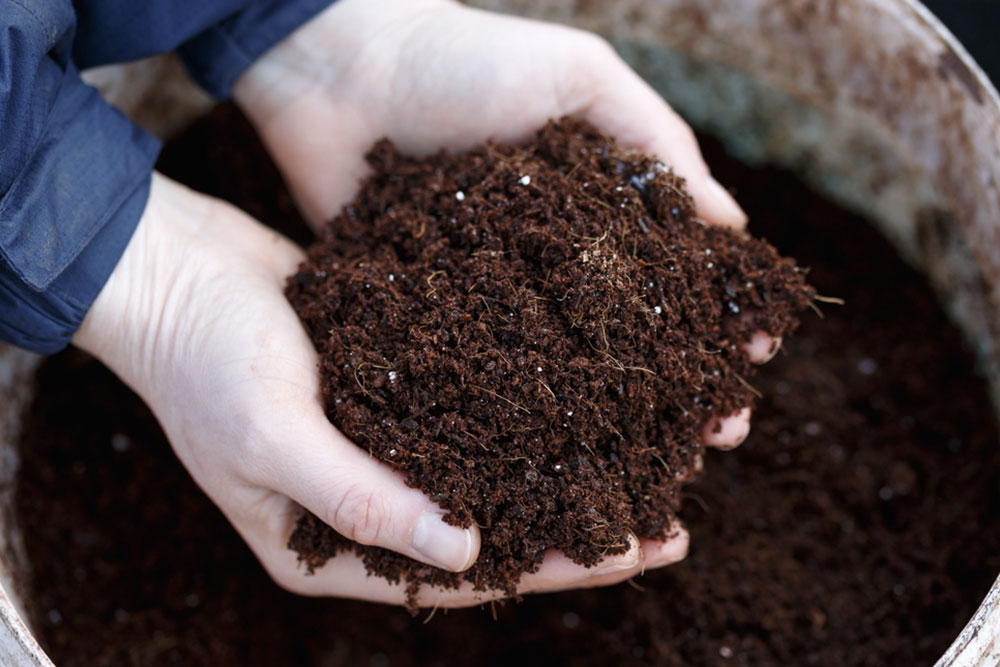Top 7 organic fertilizers for the garden
To grow healthy plants in the garden, one will need to provide the necessary nutrition to the plants through the soil. The right nutrition not only helps the plants become stronger it also improves the health of the soil. Today, one of the best ways to replenish lost soil nutrition is by introducing organic fertilizers to the garden. This method can help improve soil fertility naturally, leading to better crop yields.
What are organic fertilizers?
Organic fertilizers for the garden are natural fertilizers usually composed of a single ingredient prepared to match your garden’s specific nutritional needs. Depending on the requirements, they can be prepared from various sources, including plants, animals, and minerals.

Best types of organic fertilizers for the garden
A healthy plant requires healthy soil, which can provide the primary nutrients to induce the growth of the crops. It not only promotes the fertility of the soil but also enhances the solid structure and draining system. Here we have listed the best soil fertilizers to help build your perfect and well-balanced garden.
Manure
Manure is one of the top natural fertilizers for your kitchen garden that is prepared from animal excrement, such as cow dung.
- Cow manure
All-purpose option that burns crops less quickly because of the less nitrogen concentration. - Chicken manure
It is one of the common options preferred for its high nitrogen content. - Goat/Sheep manure
A dried and less-odorous fertilizer that is easy to apply and greatly benefits the plant’s growth.
However, raw manure can be highly acidic and may contain a higher concentration of nutrients than the basic requirements. Therefore it is best to use composted manure as they are less acidic and nutrient-dense, improving the health of the soil.
Rock phosphate
Rock phosphate is another type of fertilizer that is made from grounded-up rocks. It has higher amounts of phosphate as well as other essential nutrients. The primary advantage of using this organic fertilizer for the garden is that these elements don’t dissolve in water. Instead, they are deposited in the soil until the plants absorb them.
Compost
The compost is organic elements decomposed through the composting process. The organic elements used in the process include plant waste, vegetables, and animal excrement. It shows results at a moderate pace as it is alkaline in nature. You can add compost to your garden in various ways. For example, it can be mixed with the soil or brewed into compost tea to serve as a foliar feed.
Grass clippings
If you have a lawn with organic matter, gather the scattered grass clippings to make fertilizer for your kitchen garden. It makes an excellent-weed-blocking mulch and has a higher level of nitrogen, a critical nutrient that stimulates the growth of most crops.
Bone meal
Plants grown with organic bone meal fertilizers grow stronger and healthier by acquiring essential nutrients and vitamins. It is prepared from steamed animal bones and grounded into fine granular or powdered form. The natural decomposition process also promotes microbial growth in the soil and improves its structure and quality.
Earthworm castings
Earthworm casting is another highly preferred organic fertilizer for the garden, with a decent level of three primary nutrients. It is an excellent addition to the growth of flowers and vegetables in your garden by enhancing the aeration and availability of nutrients in the soil.
Eggshells
Using eggshells as fertilizer for your garden comes with numerous benefits. First, it helps lower the soil’s acidity level and provides the crops or plants with a high amount of Calcium. As an all-natural fertilizer, eggshell is a healthy alternative for calcium carbonate. Wash the eggshells and crush them into powder to use as a fertilizer.
Factors to consider before choosing the best soil fertilizers
There is no one-size-fits-all option for organic fertilizers for a garden. You must perform a soil test and analyze various factors to choose the best one for your plants. Some of the important factors are:
Soil texture
Various soil textures include clay, silty, loamy, or sandy soil. The type of texture will give you a better understanding of the water-retaining ability of the soil and how it impacts the growth of the crops.
The pH level of the soil
The pH level indicates the acidity nature of the soil, typically ranging from 0 to 14, where zero indicates highly acidic and 14 indicates the soil is highly alkaline. Therefore, it is wise to choose an organic fertilizer with a pH of 6.5-7, indicating a neutral range.
Nutritional requirements
Plant nutrients are typically divided into three major categories depending on the soil results and application of fertilizers. They are Phosphorous (P), Nitrogen (N), and Potassium (K).
Some other macronutrients include Calcium, Sulfur, Magnesium, Carbon, Oxygen, and Hydrogen, and micronutrients like Boron, Iron, Chlorine, Manganese, Zinc, Copper, Nickel, and Molybdenum.
Bottom line
Maintaining soil health in its uphill state is a difficult battle. However, the good news is that using organic fertilizers for gardens will improve your garden soil while providing your plants with essential nutrients. In a nutshell, embracing the organic gardens concept will allow you to sustain the enriching soil and allow your plan to experience a balanced and nourished ecosystem.

